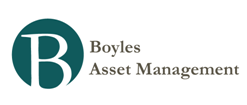Money and Finance
- Will Stock Buybacks Bite Back? - By Jason Zweig
Link to article: Will Stock Buybacks Bite Back?As the bull market soars ever higher, investors face big competition for buying the shares of companies—and it comes from the companies themselves. Last year, the corporations in the Russell 3000,...
- Exxon Mobil's Dividend Could Be In Danger
Earlier this month, Exxon Mobil (NYSE:XOM) reported Q4 2015 earnings which, as expected, looked ugly considering the large decline in the price of oil over the last one and a half years. Exxon Mobil has long been one of the largest repurchasers of shares,...
- Should We Do Away With Dividend Yield?
We may not like it, but buybacks are here to stay. Management teams prefer buybacks for a number of reasons, even though those reasons may not always be in the best interests of their shareholders. So ingrained are buybacks in today's market that...
- Should More Companies Adopt Flexible Dividend Policies?
In the U.S. and U.K. markets, the most common form of dividend policy is one that aims to pay at least the same amount year after year, regardless of the company's performance that year. I'll call this the "consistent" dividend policy. In such...
- Why Fewer Buybacks And More Dividends Would Be A Good Thing
Since certain financial regulations were loosened by the U.S. Congress in 1982 (rule 10b-18, to be specific), company stock repurchases -- commonly known as buybacks -- have rapidly become a preferred means of returning cash to shareholders. With buybacks,...
Money and Finance
Does IBM Love or Hate Itself?
There is a rare type of organism that eats itself alive. One of them is International Business Machines Corp.
For the past 20 years, IBM has been an avid, methodical buyer of its own stock. In 1993, it had 2.3 billion shares outstanding. Today it has 1.1 billion, shrinking at more than 1% per quarter over the past few years. At that pace, there will be no more publicly traded IBM shares left by 2034.
Rejoice! You might regard all this buying as good news for shareholders. Buybacks push up earnings per share. They flaunt management's confidence in the future. And they are a reason why retail investors have held on so lovingly to IBM stock.
Look deeper at IBM and dozens of mature U.S. companies, and you can sketch a different, more ominous, story: That CEOs are in fact stuck, reluctant to build new plants, launch products or pursue an acquisition.
By rote and by fear, they are pitching their billions into buybacks, nearly $1 trillion from the 100 largest companies in the S&P since 2008. In the 12 months ending in September, the total dollar amount of all corporate buybacks increased by 15% from a year earlier, according to S&P Dow Jones Indices.
…
IBM competitor Amazon.com Inc., meanwhile, continues to pour in big dollars into actual technology. It grew its capital spending 14-fold since 2008, and R&D spending fivefold.
Investor Jim Chanos is starting to worry about just this problem. As one of Wall Street's best-known short sellers, he's quietly been building an investment thesis around the idea that buybacks are a sign of corporate weakness, not strength.
Mr. Chanos shared his analysis with me from a bright conference room in his Midtown Manhattan office. We were both left agog at what the numbers seem to show about how companies are allocating their dollars. Can this really be right?
By his count, for instance, the recent return on IBM's buybacks is about 6.5%. Not a terrible number. But IBM's return on what he dubs its "net business assets"—actual stuff used in actual business—is far better. It is 18.1%.
- Will Stock Buybacks Bite Back? - By Jason Zweig
Link to article: Will Stock Buybacks Bite Back?As the bull market soars ever higher, investors face big competition for buying the shares of companies—and it comes from the companies themselves. Last year, the corporations in the Russell 3000,...
- Exxon Mobil's Dividend Could Be In Danger
Earlier this month, Exxon Mobil (NYSE:XOM) reported Q4 2015 earnings which, as expected, looked ugly considering the large decline in the price of oil over the last one and a half years. Exxon Mobil has long been one of the largest repurchasers of shares,...
- Should We Do Away With Dividend Yield?
We may not like it, but buybacks are here to stay. Management teams prefer buybacks for a number of reasons, even though those reasons may not always be in the best interests of their shareholders. So ingrained are buybacks in today's market that...
- Should More Companies Adopt Flexible Dividend Policies?
In the U.S. and U.K. markets, the most common form of dividend policy is one that aims to pay at least the same amount year after year, regardless of the company's performance that year. I'll call this the "consistent" dividend policy. In such...
- Why Fewer Buybacks And More Dividends Would Be A Good Thing
Since certain financial regulations were loosened by the U.S. Congress in 1982 (rule 10b-18, to be specific), company stock repurchases -- commonly known as buybacks -- have rapidly become a preferred means of returning cash to shareholders. With buybacks,...

